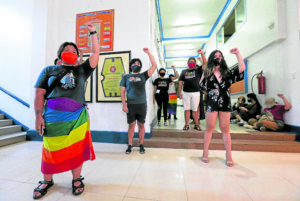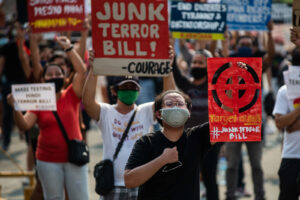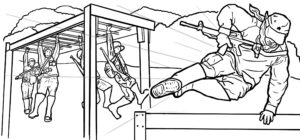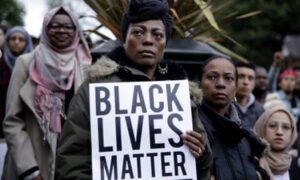IATF fails to counter Covid-19

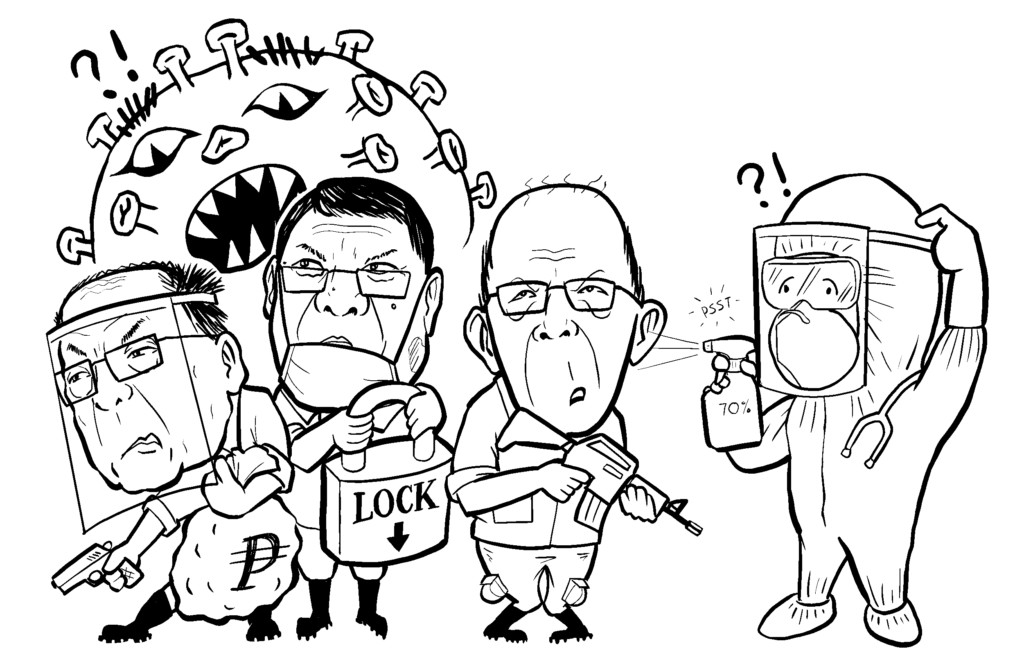
The Philippines is far from eradicating the Covid-19 pandemic after four months under the Bayanihan to Heal as One or the Bayanihan Act. Infected cases are still on the rise. In July 6, the country registered 46,000 positive cases. This did not include the 8,000 positive cases awaiting validation from the Department of Health.
Duterte and his generals in the Inter-Agency Task Force for Emerging Infectious Diseases (IATF-EID) utterly failed in controlling the spread of the virus. The data they are propagating is incomplete, riddled with errors, late and thus is useless in mapping the pandemic. Testing is still limited at 14,000/day, not even half of its target of 30,0000/day last May. Contact tracing is still slow. When cases rose in Cebu, Duterte responded with more military and police troops instead of additional funds and medical workers.
Worse, the IATF exported the virus to many provinces when it carelessly ordered the return of stranded individuals from Metro Manila without proper or overdelayed test results to ensure that they are not virus carriers. The IATF also did nothing to prepare hospitals and quarantine facilities to accommodate them in the provinces. In July, eight new virus hotspots emerged due to Metro Manila and Cebu imported cases.
Up to now, aid for those who lost their livelihoods remains meager. Out of the P3-trillion funds that Duterte amassed through the Bayanihan Act, only 31.5 families have benefited from the first tranche of aid as of June 29. Only ₱186 billion out of ₱272 billion have been distributed to local governments. Half or only ₱14 billion of the ₱30 billion health funds have been utilized.
Only 3.1 million workers received aid, even as approximately 7 million have lost their jobs, temporarily or permanently, because of the lockdown. In a survey last May, 5.4% of the workforce or 4.1 million workers have been stranded in different parts of the country, with Metro Manila hosting the highest number (490,000). Many of them are suffering due to the IATF’s arbitrary imposition of ever-changing travel policies. They endure miserable conditions as they no longer have money, aid, shelter, food and prospects for livelihood and employment.
The country is still under different levels of lockdown. The Philippines has implemented the longest and most violent lockdown in the world. It continues to lockdown the people but has eased restrictions to favor several businesses, agencies and sectors.
Movement in all levels of quarantines is still restricted to workers in “essential business and services.” It insured the continued operations of foreign companies in BPOs, gambling, construction, manufacturing and large malls.
Public transportation is still limited even though many have been ordered back to work. This July, only 8 for every 100 traditional jeepneys in Metro Manila were allowed to ply their routes. This is despite studies showing that these jeepneys are safer than buses, vans and modern jeepneys which are enclosed, and thus more likely to spread the virus.
Citizens aged 21 and below are still locked-up in their houses. They comprise the majority of the 30 million who are denied their right to education and jobs due to the changing and anti-poor state policies on education and school openings.
From March 7 to May 31, the police troops have arrested at least 188,348 individuals due to “quarantine violations.” More than 57,700 were slapped with cases and 23,377 were ordered to pay fines.
Lawyers questioned the legality of the lockdown, especially the restrictions on businesses, travel and movement of the people. According to them, these restrictions contradict constitutional provisions which state that such are not allowed unless put into law. It is also erroneous to assume that these are covered by the Bayanihan Act. Restrictions on travel and gatherings and curfew further lost any legal basis when the Bayanihan Act expired on June 24.

